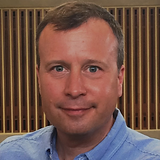Continuing Education
Integrating Structural Assessment and Internal Medicine Based on Applied Channel Theory
14. - 15.11.2026
This seminar will utilize extensive hands-on practice to develop skills for using channel palpation to evaluate the interplay of structure and function in East Asian medicine. The palpation of major distal and local points will be presented and practiced. Students will learn how palpation and assessment of body alignment can allow for diagnostic refinement using a six-channel qi transformation model.




